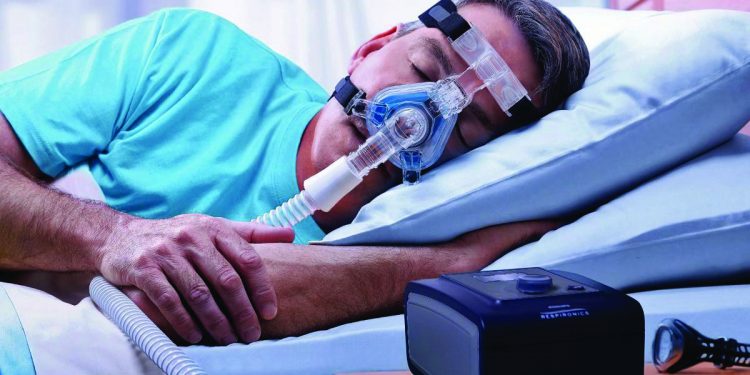Sleep apnea, which causes waking up tired in the morning, reduces people’s quality of life. On the other hand, sleep apnea can even cause sudden death at night if left untreated.
Sleep apnea is defined as the interruption of breathing tens or hundreds of times during sleep due to the contraction that occurs after relaxation of the muscles surrounding the airway. Sleep apnea, which is the second most common sleep disorder after insomnia, can be seen in young people, even in children, due to the increase in obesity prevalence. Moreover, if it is not treated, it can result in sudden death, especially at night or in the morning, due to the problems it causes, as well as significantly reducing the quality of life!
Acıbadem Taksim Hospital Neurology Specialist Dr. Mustafa Emir Tavşanlı, warning that the oxygen rate in the blood decreases during sleep apnea when breathing is interrupted, “Fluctuations in oxygen levels can damage the tissues in the body. In particular, damage to vascular structures can cause occlusions in the veins. Sudden spikes in blood pressure may also occur. Then it increases the risk of cardiovascular and cerebrovascular diseases known as heart attack and stroke. For this reason, it is vital not to be late for treatment,” he said.
Obesity is the most important risk
Emphasizing that the risk of sleep apnea increases after the age of 40 in men and after menopause in women, Acıbadem Taksim Hospital Neurology Specialist Dr. Mustafa Emir Tavşanlı continued his words as follows: “Especially being overweight is the most important risk factor for sleep apnea. According to studies, a 10% increase in weight increases the risk of sleep apnea by 6 times. In addition, if the neck structure of the person is short and the path through which the air passes in the throat is structurally narrow, the risk of apnea increases. On the other hand, some genetic diseases, conditions such as hypothyroidism and acromegaly also cause sleep apnea. Some drugs, smoking and alcohol consumption can also trigger sleep apnea.”
Uninterrupted breathing with compressed air!
Acıbadem Taksim Hospital Neurology Specialist Dr. Mustafa Emir, “Sleep apnea is determined by ‘polysomnography’, which monitors the patient’s sleep for one night and records various parameters such as brain activity, respiration, heart rhythm and body muscle movements. These tests also measure the severity of sleep apnea. In the treatment, we give compressed air to the patient. With this method, we aim to overcome the obstruction in the airway and to continue breathing without interruption. In general, the device that constantly gives positive air pressure, which we call CPAP, is sufficient,” he said.
Neurologist Dr. Mustafa Emir Tavşanlı continued his speech as follows: “In some patients, surgery may be considered for structures that narrow the anatomical structure of the throat and nose, because this stenosis can sometimes prevent the use of a compressed air device. As sleep quality improves with treatment, the patient’s complaints disappear. In addition to this treatment, it is also important for the patient to lose weight. If the patients lose enough weight, the pressure of the patients decreases and some patients may not need device treatment.”
If you have these symptoms, don’t waste your time!
“Although patients often complain of snoring, this is not the only symptom,” said Dr. Mustafa Emir Tavşanlı lists the warning signs in terms of sleep apnea as follows:
- Loud and intermittent snoring
- Recognition of the interruptions in the patient’s breathing by the people around him.
- Waking up as if suffocating
- Feeling the need to go to the toilet at night
- Sweating at night, especially on the neck and chest
- Getting up tired in the morning
- Being sleepy and tired during the day
- Waking up with a headache in the morning
- Forgetfulness, attention and concentration disorder





